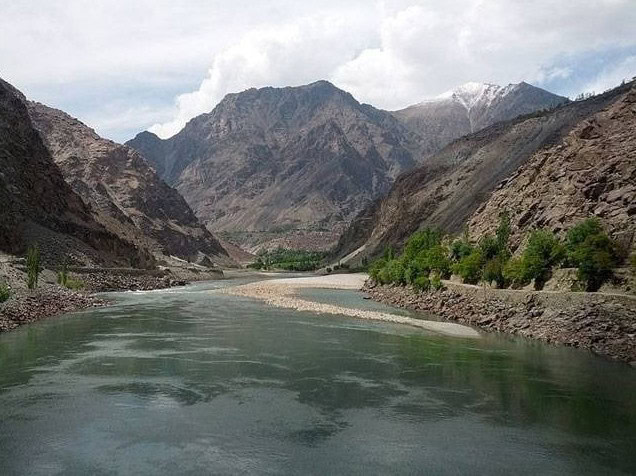We are watching two very different paths being taken right now. One is a path of aggression, where India has shockingly decided to suspend the Indus Waters Treaty, turning a shared source of life into a political weapon. This high-stakes gamble not only creates danger close to home but also disregards the norms that keep our world from descending into chaos. Then there is the other path, the one championed by Pakistan. It’s a path of reason and responsibility, where the call is for dialogue, the appeal is to international law, and the goal is peaceful cooperation.
For over six decades, the IWT has stood as a symbol of resilience and peaceful coexistence, even during times of war. Brokered by the World Bank in 1960, it allocated the three western rivers (Indus, Jhelum, Chenab) to Pakistan and the three eastern rivers (Ravi, Beas, Sutlej) to India. Despite countless provocations, Pakistan has honoured the treaty — even when India repeatedly tested its patience with dam constructions and water flow diversions.
India’s recent decision to walk away from this historic agreement, in the aftermath of an unverified incident in Kashmir, reveals the depth of its growing hostility. No credible evidence linked Pakistan to the attack in question. Yet, India chose to politicize water — a vital lifeline for Pakistan — instead of engaging in fair negotiations or presenting its case through established mechanisms.
This aggressive posture should set off alarms internationally. Pakistan, as the lower riparian state, is inherently vulnerable to any disruption in the flow of the Indus rivers. With over 80% of its agricultural sector dependent on this water, India’s move doesn’t just threaten bilateral relations — it puts millions of Pakistani lives and livelihoods at risk.
Foreign Minister Ishaq Dar’s meeting with UN Secretary-General António Guterres in New York highlighted the urgency of this matter. Pakistan’s appeal to the global community is not driven by politics — it is a plea for justice, stability, and adherence to the rule of law. At a time when the world grapples with climate change and water scarcity, India’s weaponization of a shared resource is not just immoral, it’s dangerous.
Even more disturbing is how India chose to invoke Article XII of the treaty, demanding a renegotiation, only to abandon the agreement without waiting for a mutually agreed outcome. This is not diplomacy; this is coercion disguised as policy. And the international community must call it what it is — a reckless breach of a binding treaty.
Yet amid India’s belligerence, Pakistan has taken the high road. Rather than respond with equal aggression, Islamabad has called for meaningful dialogue. It has invited India back to the negotiating table, emphasizing that the IWT should be improved, not dismantled. That’s the mark of a responsible state — one that values peace and partnership over posturing and provocation.
There are areas where the treaty could indeed be updated — and Pakistan has proposed thoughtful solutions. One such proposal is to bring China into the fold. As the Indus River originates in Tibet, and given China’s status as a riparian state in other major transboundary rivers, its inclusion could rebalance regional power dynamics and deter India from acting unilaterally.
Another urgent reform is curbing India’s unchecked construction of dams on western rivers. Currently, Pakistan is allowed to challenge only the technical design of Indian projects — not their necessity or timing. This legal loophole empowers India to continue its dam-building spree while Pakistan watches helplessly. A fair treaty must allow Pakistan to challenge the very intent behind such actions through international legal mechanisms, including the International Court of Justice.
Climate change also adds a new layer of complexity. The IWT was signed in a different era — one that didn’t account for glacial melt, erratic monsoons, or environmental degradation. Pakistan is rightly pushing for a permanent expert panel to monitor these shifts and recommend scientific, data-driven reforms.
And finally, Pakistan must demand minimum water flow guarantees in the eastern rivers. India’s control over these rivers cannot come at the cost of Pakistan’s food security or human development. International law clearly supports downstream nations’ right to sufficient ecological and human-use flows.
This isn’t just about water. It’s about principles. India’s disregard for a longstanding treaty reflects a larger pattern of regional intimidation — from abrogating Kashmir’s special status to instigating cross-border tensions. Pakistan, meanwhile, continues to uphold international agreements, advocate for peace, and seek multilateral cooperation.
In sum, India’s suspension of the Indus Waters Treaty is reckless, unjust, and destabilizing. It threatens not only Pakistan’s security but the integrity of international law. The world must not stand by in silence. It must support Pakistan’s demand for fairness, justice, and a future rooted in cooperation — not coercion.
Pakistan is not asking for favors. It is asking for what is rightfully its own: water, peace, and the promise of treaties kept.














